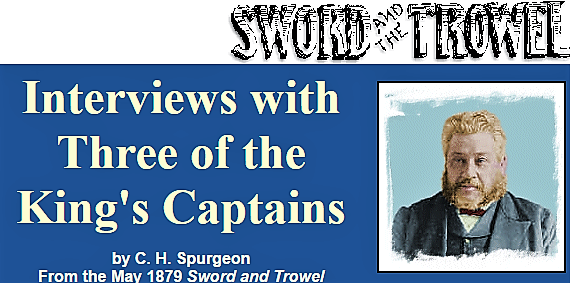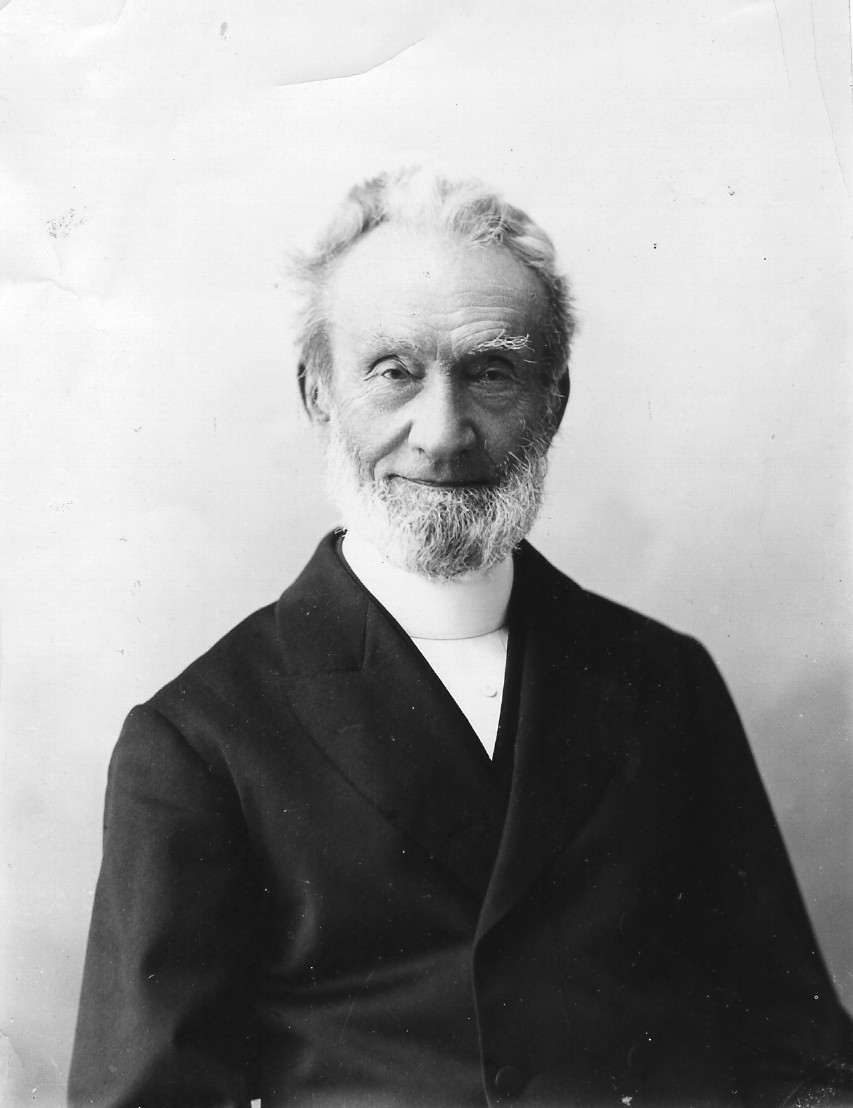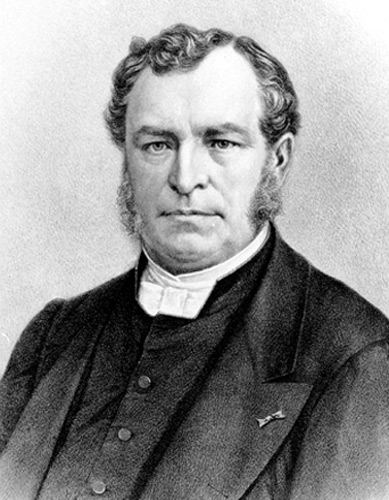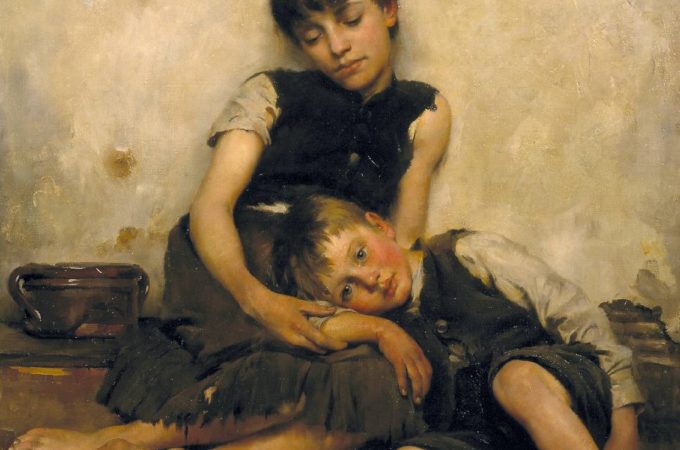Social justice warriors have been around for a long time.
We posted recently about Charles Spurgeon and got this response from a reader, Jerry Miner.
 Thanks, Darrow! Spurgeon was surrounded by friends and colleagues who thought as he did. There was no artificial divide between social and true gospel. They did not have to speak about “holism” because the gospel was comprehensive… it connected and permeated every area of life. I think this article written by CHS shares this quite well.
Thanks, Darrow! Spurgeon was surrounded by friends and colleagues who thought as he did. There was no artificial divide between social and true gospel. They did not have to speak about “holism” because the gospel was comprehensive… it connected and permeated every area of life. I think this article written by CHS shares this quite well.
Jerry pointed us to “Interviews with Three of the King’s Captains” from the May 1879 issue of Spurgeon’s monthly magazine, Sword and Trowel. If you like reading Spurgeon’s sermons you will enjoy his essay. He summarizes, in his inimitable style, meetings with three social justice warriors. Two—Hudson Taylor and George Müller—were prominent Christian leaders of Spurgeon’s day. Another, lesser known contemporary, John Bost, completed the trio.
Three Social Justice Warriors
Hudson Taylor founded China Inland Mission (known today as OMF International). Our readers are no doubt familiar with this 19th century apostle. The passing of 112 years since his death has not diminished his larger-than-life reputation.

Probably many readers have also heard about George Müller. The name John Bost is less familiar. In commending these two, in particular, Spurgeon was honoring true “social justice warriors,” to employ a term loosely thrown around today.
Like Spurgeon, Müller was a devout servant of Jesus Christ whose prayer life and devotional musings reflect a deep personal piety. And, again, like his preacher friend, that piety translated into deeds of service among needy humans. In 1832, he became the pastor of a church in Bristol, England, where he walked the streets with a heart broken for the many orphans. “They lived on the streets or in state-run poorhouses, where they were treated badly. George felt God calling him to open an orphanage to take care of the children.”[i] Spurgeon writes, in the above-mentioned article, “No doubts disturb the Director of the Ashley Down Orphanage; how can there be when he sees the Lord daily feeding his 2,050 orphan children in answer to his prayers?”
Among the greatest monuments of what can be accomplished through simple faith in God are the great orphanages covering thirteen acres of ground on Ashley Downs, Bristol, England. When God put it into the heart of George Muller to build these orphanages, he had only two shillings (50 cents) in his pocket. Without making his wants known to any man, but to God alone, over a million, four hundred thousand pounds ($7,000,000) were sent to him for the building and maintaining of these orphan homes. When the writer first visited them, near the time of Mr. Muller’s death, there were five immense buildings of solid granite, capable of accommodating two thousand orphans. In all the years since the first orphans arrived the Lord had sent food in due time, so that they had never missed a meal for want of food.[ii]
As for musician-turned-pastor John Bost, Spurgeon cataloged his social outreach (using language both archaic and offensive to modern ears but neither at the time). Here’s Spurgeon’s brief description of the work of another of his social justice warriors.
 Orphans, idiots,[iii] imbeciles,[iv] and epileptic persons are the objects of our friend’s loving care. It touched our heart to hear him speak of the deaf and dumb, and blind and lame, but more especially of the poor epileptics, who are his special favorites, because they suffer so greatly and involve so much weary watching and painful care. He has eight institutions: La Famille Evangelique for orphan girls; Bethesda for incurables, blind, and idiot girls; Ebenezer for epileptic girls; Siloam and Bethel for epileptic boys; Le Repos for invalid governesses, etc.; La Retraite for invalid servants, and La Misericorde for idiots and epileptics. There are three hundred and sixty-six inmates in these eight abodes, and for all their wants John Bost is responsible.
Orphans, idiots,[iii] imbeciles,[iv] and epileptic persons are the objects of our friend’s loving care. It touched our heart to hear him speak of the deaf and dumb, and blind and lame, but more especially of the poor epileptics, who are his special favorites, because they suffer so greatly and involve so much weary watching and painful care. He has eight institutions: La Famille Evangelique for orphan girls; Bethesda for incurables, blind, and idiot girls; Ebenezer for epileptic girls; Siloam and Bethel for epileptic boys; Le Repos for invalid governesses, etc.; La Retraite for invalid servants, and La Misericorde for idiots and epileptics. There are three hundred and sixty-six inmates in these eight abodes, and for all their wants John Bost is responsible.
Spurgeon himself said, “A church that does not exist to reclaim heathenism, to fight with evil, to destroy error, to put down falsehood; a church that does not exist to take the side of the poor, to denounce injustice and to hold up righteousness, is a church that has no right to be. Not for thyself, O church does thou exist, any more than Christ existed for himself.”[v]
Spurgeon and his social justice warriors serve as models of a wholistic biblical framework. They suffered no artificial divide between the body and the spirit. May their tribe increase around the world today.
- Gary Brumbelow
[i] George Müller, by J. Gilchrist Lawson
[ii] Ibid
[iii] Dictionary.com: Psychology. (no longer in technical use; considered offensive) a person of the lowest order in a former and discarded classification of mental retardation, having a mental age of less than three years old and an intelligence quotient under 25.
[iv] Dictionary.com: Psychology. (no longer in technical use; now considered offensive) a person of the second order in a former and discarded classification of mental retardation, above the level of idiocy, having a mental age of seven or eight years and an intelligence quotient of 25 to 50.
[v] Flashes of Thought, p. 66.







4 Comments
Piedoso Calala
April 1, 2017 - 8:10 amI would like to write to Darrow L. Miller and interact with him, therefore, I have some questions to ask. Can you give me his e-mail, please?
admin
April 4, 2017 - 2:08 pmDarrow may be reached through the DNA general mail at info@disciplenations.org
kudzai
April 2, 2017 - 5:23 amMy eyes were first opened to the role of the church in transforming culture when I first met Darrow in 2012. The issue of social justice weighs even heavier on my heart today not as another good Christian thing to do but as central to the Christian life.
I’ve been meditating on Isaiah 58; Isaiah 60:1-2a and Luke 4:16-22. I look at all the difficulties the nations are facing; droughts, wars, terrorism, collapsing economies, the many widows and orphans as a result of the AIDS pandemic and other diseases especially in Africa. As a direct or indirect result of all of these things, we probably have the highest number of refuges flocking to different countries and regions across the world to seek for a ‘better life’. In as much as the response of the nations receiving the refugees has not been ‘so nice’ I also think that the nations from which they are fleeing also carry first responsibility to do all things necessary for their peoples to live a fruitful and fulfilling life. I can say this because I’m a Zimbabwean living in South Africa for the past 10 years. In all of this I find that the world has adopted a cultural that is focused on self. This is also true of believers as well, for most of us the gospel is there to bless ‘me’ therefor our theologies are also very much selfish and inconsistent with the person of Jesus Christ.
Please correct me if I’m wrong but when I read Isaiah 58:6-10 I see a solution to the issues of the world coming through the body of Christ committed to following the example that Jesus set for us (Isaiah 60:1-2a; Luke 4:16-22). Could it be that pouring ourselves for the poor, widows, orphans and the refugees is what would turn God’s heart to heal our world? Yes we would first need to humble ourselves, turn from our selfish, wicked ways and pray. But could social justice be integral to seeing a revival in the nations?
admin
April 4, 2017 - 2:24 pmKudzai
It is good to hear from you after all these years. Your comments are very insightful. Unfortunately, today the phrase “social justice” has been hijacked from its Biblical meaning of equity to be seen in a materialistic frame as equal material outcome. For more on this, please see my book Rethinking Social Justice – https://smile.amazon.com/Rethinking-Social-Justice-Restoring-Compassion/dp/1576587932/ref=sr_1_fkmr0_1?ie=UTF8&qid=1491340628&sr=8-1-fkmr0&keywords=Darrow+Miller+reclaiming+social+justice